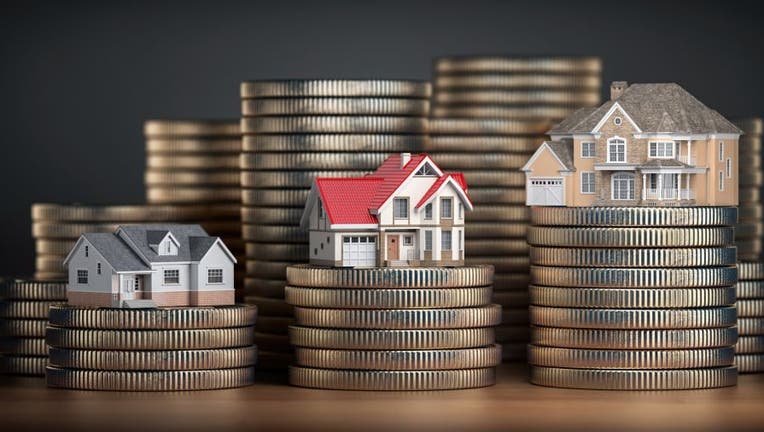Coronavirus impacts your San Francisco home's value - here's how

Surprisingly, San Francisco home values may not fall in the coronavirus era. Lean more about where home prices may be going and why now may be an ideal time for a mortgage refinance. (iStock)
The novel coronavirus has had devastating financial consequences for the U.S., causing record unemployment and raising concerns of a recession.
For Bay Area homeowners, the very thought of an economic downturn is enough to strike fear in the heart, especially after the hard impact of the 2008 financial crisis on home prices. While a 2017 report from real estate website Trulia revealed 98 percent of homes in San Francisco were worth more than they were 7 ½ years ago, values still took time to rebound even as the city had the second-highest recovery rate in the nation.
But even as the worst of the economic chaos reigned during the coronavirus pandemic, there were reasons for homeowners to feel optimistic. The Federal Reserve slashed interest rates to bolster the economy, sending mortgage rates in San Francisco plummeting from an average of 4.19 percent for a 30-year fixed rate mortgage on March 1 to just 3.71 percent on April 1 and 3.60 percent on the first of May.
Falling rates created an optimal environment for both mortgage refinancing and securing new home loans while the Coronavirus Aid, Relief, and Economic Security (CARES) Act protected millions against foreclosures and prevented its damaging effects on the housing market.
Although coronavirus remains a pressing threat, evidence points to the fact home prices in the Bay Area will climb further in the future. These rising values, coupled with today's low mortgage rates, make now a great time for homeowners to take a close look at whether they have the right home loan. Doing so is easy, as visiting Credible can help owners explore mortgage refinance options to see if they could save.
EVERYTHING YOU NEED TO KNOW ABOUT MORTGAGE REFINANCE
San Francisco homeowners can benefit from current market conditions
Rising home prices and record-low mortgage rates are a boon both to home sellers and to those homeowners who want to secure a new mortgage loan at a lower rate. Higher home values both maximize the chances well-qualified borrowers can qualify for mortgage refi loans at low rates and open the door to cash-out refinance loans for those who want to tap into the equity in their homes.
Refinancing doesn't make sense for every homeowner, of course, as those whose income or credit scores have been affected by coronavirus may be unable to qualify for loans at the most competitive rates. That's especially true as some banks and other mortgage lenders may impose more stringent qualifying requirements in response to higher unemployment rates and increased economic uncertainty.
REFINANCING YOUR MORTGAGE WILL SAVE YOU THE MOST MONEY IN THESE CITIES RIGHT NOW
Homeowners planning to move in the short-term may also not benefit from a refinance loan as most loans come with closing costs and it takes time for a reduced interest rate to generate enough savings to cover them.
Still, if you're planning to stay put in your home for several years and have the financial credentials to qualify, refinancing soon could provide significant savings. Visit Credible today to find out what type of loan you could qualify for and to see if refinancing is right for you.
San Francisco homeowners unlikely to be hurt by coronavirus as the housing market remains strong
While the 2008 recession was real-estate driven -- led by the bursting of the subprime mortgage bubble, a mortgage crisis, and the collapse of home values -- the financial turmoil resulting from coronavirus didn't send housing prices plunging.
In fact, median sale prices rose in seven core counties in both the East Bay and Silicone Valley areas in April, with homes selling as quickly as during the 2017 and 2018 housing booms, according to Mercury News. These speedy sales were largely driven by buyers eager to snap up homes from among a limited supply as sellers pulled their homes from the market out of fear of opening up their doors to strangers during social distancing.
And as businesses throughout the city open its doors again, pent-up demand created during the lockdown will likely serve only to bolster prices further.
"Home prices are impacted by supply and demand and the supply is very limited while the demand, even with high unemployment, shows remarkable strength," explained Dr. Lawrence Yun, chief economist for the National Association of Realtors. "The record-low mortgage rates are no doubt helping to attract those buyers with secure employment. Home prices, therefore, are higher in 2020 compared to 2019."
The long-range forecast also looks good for homeowners, who may see a sharp rise in home value thanks to increased inflation resulting from coronavirus relief efforts. "So much fiscal stimulus debt is being purchased by the Federal Reserve with printed money," said Yun. He anticipates a spike in inflation over time, although not in 2020 or 2021. "If inflation kicks higher to 5 percent in 2025, home prices could rise as much as 6 percent to 8 percent annually," Yun said.

